Max Romeo (born Maxwell Livingston Smith) died on April 11, 2025, because of severe heart issues that caused his death at age 80. Romeo developed over a 60-year musical career from creating controversial rocksteady songs to becoming a key figure in roots reggae through his work with Lee “Scratch” Perry at Black Ark Studio by creating songs with social and political content.
The chart-topping success of "Wet Dream" smashed BBC prohibitions despite reaching position 10 in the UK Top 10, while songs such as "Chase the Devil" became influential to The Prodigy and Kanye West. The albums Revelation Time (1975) and War Ina Babylon (1976), released during the 1970s in Jamaica, exposed the societal conflicts along with Rastafarian spiritual beliefs.
Through his work, Max Romeo continues to share essential musical evolution along with cultural insights of a groundbreaking reggae epoch.
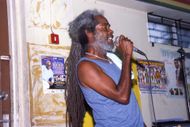
1. “Chase the Devil” (1976)
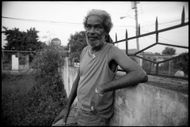
Released in 1976 on War Ina Babylon, “Chase the Devil” features Max Romeo’s vocals backed by Lee “Scratch” Perry’s Upsetters. The song uses the metaphor of “sending the devil to outer space” to represent casting out negativity and inner turmoil.
Its dub‑driven rhythm and unforgettable hook led The Prodigy to sample it in “Out of Space” (1992) and Kanye West to rework it for Jay‑Z’s “Lucifer” on The Black Album (2003). In a 2010 BBC Four interview, Max Romeo explained the “iron shirt” as symbolic of spiritual armor against evil forces. Covers by Madness and Dreadzone attest to its enduring resonance in reggae and wider music scenes.
2. “Wet Dream” (1968)
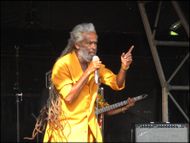
“Wet Dream” marked Max Romeo’s solo breakthrough in 1968, notable for lyrics so suggestive that the BBC banned it from airplay. Produced by Bunny Lee, the track combines a laid‑back rocksteady groove with playful double entendres that sparked debate about its true meaning.
Despite or perhaps because of the ban, it climbed to number 10 on the UK Official Singles Chart and remained on the chart for 24 weeks during mid‑1969. Max Romeo later quipped that the song was inspired by a leaking roof rather than erotic fantasy, a tongue‑in‑cheek defense that added to its mystique. The success of “Wet Dream” established his reputation for pushing reggae’s lyrical boundaries.
3. “War Ina Babylon” (1976)
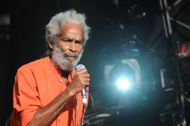
The title track of War Ina Babylon captures the social and political unrest in 1970s Jamaica, juxtaposing militant rhythms with lyrics about resisting oppression. Co‑written and produced by Max Romeo and Perry, the song indicates Rastafarian perspectives on Babylon as a corrupt system to be challenged.
Its urgent bassline and evocative vocals create a sense of both struggle and resilience, mirroring the tension between rival political factions of the era. While not released as a single, it remains central to Max Romeo’s repertoire and the roots reggae canon, often cited alongside Bob Marley’s overtly political anthems.
ALSO READ: “DROP THE SONG WITH HIM”: Fans react as Sexxy Red joins Justin Bieber in the club
4. “One Step Forward” (1976)
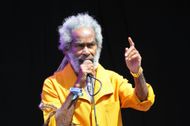
Appearing on War Ina Babylon, “One Step Forward” explores themes of progress amid adversity, urging listeners to persevere despite setbacks. The mid‑tempo groove is underpinned by Perry’s dub production, allowing Romeo’s message of cautious optimism to stand out.
Lyrics like “One step forward, two steps back” acknowledge the non‑linear path of social change, resonating with communities facing economic hardship and political violence. Though less sampled than “Chase the Devil,” this track illustrates Max Romeo’s skill at blending melody with meaningful commentary, cementing his role as both artist and observer of his time.
5. “Let the Power Fall” (1971)
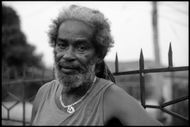
The title track of his 1971 album, “Let the Power Fall,” became the unofficial anthem of Michael Manley’s People’s National Party during the 1972 election. Produced as a “churchical‑reggae” tune, it calls on divine intervention to bring social justice and uplift the disenfranchised.
Romeo’s deliberate invocation of spiritual themes aligned with the PNP’s democratic socialist platform, illustrating how culture and politics intertwined in that period. The song’s steady rhythm and emphatic chorus made it accessible to a broad audience, reinforcing Max Romeo’s shift toward overtly political material.
6. “Three Blind Mice” (1975)
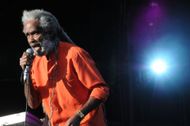
On Revelation Time (also released as Open the Iron Gate), Romeo reimagines the nursery rhyme “Three Blind Mice” to critique law enforcement and social inequality. Perry’s atmospheric production adds tension, while Max Romeo’s verses describe a sudden police raid on a community gathering, portraying state violence with haunting clarity.
This fusion of familiar imagery and real‑world commentary demonstrates his ability to subvert expectations and draw attention to injustice through accessible metaphors. The track remains a powerful example of roots reggae’s capacity for protest and storytelling.
ALSO READ: Who are the headliners for Rock the Tides festival in Mexico? Details explored
7. “Open the Iron Gate” (1975)
Also from Revelation Time, “Open the Iron Gate” uses the image of locked gates to represent barriers to freedom and prosperity. Lines such as “Jah, Jah, open up the iron gate and let your children repatriate” link spiritual liberation with the Rastafarian dream of returning to Africa.
Perry’s dub‑infused instrumentation underscores the song’s urgency, while Max Romeo’s pleading vocal delivery strengthens the theme of deliverance from oppression. The track stands as a testament to the blend of activism and spirituality that defined much of Romeo’s mid‑1970s work.
8. “Norman” (1976)
“Norman,” another cut from War Ina Babylon, tells the story of an everyman navigating urban challenges and moral ambiguity. Max Romeo's narrative style paints a vivid picture of neighborhood life, complete with references to poverty, betrayal, and survival.
Perry’s tight rhythm section and subtle horn accents complement the storytelling, giving the track a cinematic quality that draws listeners into Norman’s world. While not a commercial single, “Norman” showcases Romeo’s versatility as both a lyricist and social commentator.
9. “Revelation Time” (1975)
The album’s title track, “Revelation Time,” urges listeners to wake up to societal ills and impending change. With lyrics like “It’s revelation time, no more room for dishonesty,” Max Romeo emphasizes accountability and awareness.
Perry’s echoing production techniques reinforce the song’s prophetic feel, creating an atmosphere of both warning and hope. As the opener to Revelation Time, it sets the tone for an album deeply concerned with moral and political truths, solidifying Romeo’s role as a voice of consciousness in reggae music.
10. “Fire Fi the Vatican” (1980s)
“Fire Fi the Vatican” delivers a fiery critique of institutional power, targeting perceived hypocrisy within religious authority. The track’s dancehall‑style riddim and incendiary lyrics reflect Max Romeo’s willingness to broach controversial topics beyond Jamaican politics, commenting on global centers of power.
Though released later than his seminal 1970s work, it demonstrates that Romeo’s commitment to social commentary remained undimmed into the 1980s and beyond. His bold stance in this song underscores the breadth of his thematic concerns.
Max Romeo’s catalog offers a journey through reggae’s evolution from playful rocksteady beginnings to profound roots reggae statements, always grounded in real‑world concerns. His collaborations with Lee “Scratch” Perry yielded some of the era’s most memorable productions, while his solo work charted new territory in lyrical frankness and political engagement.
Tracks like “Wet Dream” and “Chase the Devil” continue to influence artists across genres, and songs such as “Three Blind Mice” and “Fire Fi the Vatican” remind us of reggae’s power to confront injustice. These ten recordings remain essential listening for understanding both Max Romeo’s legacy and reggae’s capacity for commentary and creativity.
ALSO READ: Elton John and Brandi Carlile launch campaign to fight Trump’s HIV/AIDS funding cuts
